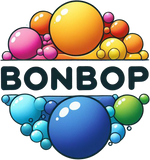Explore the relationship between color and emotion, and how color choices can impact human emotions and perceptions, with a focus on the use of color in fashion to evoke specific emotions and enhance mood.
Introduction to Color and Emotion Relationship
Color is a powerful tool that deeply affects human emotions and perceptions, triggering specific feelings and responses. Through the fascinating realm of color psychology, we explore how different colors can significantly impact our emotional reactions and behaviors, underscoring the essential need to comprehend the emotional implications of colors. Whether in design, branding, or communication, colors wield the ability to sway mood and behavior, making them indispensable in our daily lives.
Understanding the relationship between color and emotion is vital in various contexts, such as design, branding, and personal expression. For instance, the choice of warm colors like red, orange, and yellow can evoke feelings of happiness, energy, and passion, while cool colors like green, blue, and purple tend to have a calming and soothing effect. This intricate interplay between colors and emotions underscores the significance of color psychology in influencing how we perceive the world around us and how others perceive us based on the colors we interact with daily.
The Psychological Effects of Colors on Human Emotions
The impact of warm colors, such as red, orange, and yellow, on human emotions is profound. Red, often associated with passion and energy, can evoke strong emotions, making it a popular choice in branding to convey excitement and urgency. For example, many fast-food chains use red in their logos and decor to stimulate appetite and create a sense of urgency in customers. Similarly, orange is linked to feelings of enthusiasm and warmth, making it a suitable color for brands focusing on fun and creativity. For instance, companies like Nickelodeon use orange in their branding to appeal to a younger audience and convey a sense of playfulness [1].
On the other hand, cool colors like blue, green, and purple have a more calming effect on emotions. Blue, often associated with stability and trustworthiness, is frequently used by banks and financial institutions to instill a sense of security and reliability in their customers. For example, the deep blue color in the logo of major financial institutions like Chase and Bank of America aims to create a feeling of trust among clients. Additionally, green is commonly linked to nature and tranquility, making it a popular choice for brands promoting sustainability and wellness. Companies like Whole Foods use green in their branding to emphasize their commitment to natural and organic products, appealing to environmentally conscious consumers. Lastly, purple, associated with creativity and luxury, is often used by beauty and cosmetic brands to evoke a sense of sophistication and indulgence. For instance, luxury perfume brands like Chanel and Dior often incorporate purple hues in their packaging and advertising to convey elegance and exclusivity.
The intricate relationship between colors and emotions goes beyond mere aesthetics, playing a vital role in influencing consumer behavior and brand perception. By understanding the emotional impact of different colors, businesses can strategically use color psychology to create powerful connections with their target audience and evoke specific feelings and responses.
Influences on Color Perception
Understanding how colors influence human emotions involves delving into the intricate relationship between abstract concepts like emotions and concrete experiences like color. This connection is exemplified by the conceptual metaphor theory, which suggests that our emotions are closely linked to the colors we perceive. By associating emotions with specific colors, individuals create a unique psychological response to their surroundings, showcasing the profound impact of color on our feelings and perceptions.
Moreover, the assessment of color-emotion associations can vary depending on the methodology used, leading to a multifaceted understanding of how colors influence our emotional responses. Research comparing color associationsthrough color patches and color terms has shed light on the complex nature of these relationships, emphasizing the diverse ways in which colors evoke emotions in individuals. By exploring these different methodologies, we can deepen our comprehension of how colors shape our emotional experiences and perceptions in various contexts.
In essence, the influences on color perception underscore the depth and complexity of the connection between colors and emotions, highlighting the need for a nuanced approach to understanding how different colors impact our mood and behavior. For a more comprehensive insight into the intricate interplay between color and emotions, exploring various methodologies and theories can provide valuable perspectives on the profound influence of color on our daily lives.
The Use of Color in Fashion to Evoke Specific Emotions
Fashion is not merely about clothing; it is a powerful means of expressing emotions and influencing mood through color choices. A vibrant Spring Blazer and Skirt Set by bonbop pairs a yellow blazer with a floral skirt, perfect for a playful yet sophisticated spring look. Bonbop, a brand known for its imaginative and moderately priced collection, understands the significance of color in creating vibrant and mood-enhancing fashion pieces. By strategically combining colors, fashion designers can evoke specific emotions and create unique style statements that resonate with individuals on an emotional level.
Moreover, the psychology of color in fashion goes beyond aesthetics; it delves into the realm of personal expression and mood enhancement. For instance, incorporating bright and bold colors like red or orange can evoke feelings of energy and passion, while softer hues like pastel blues and greens may induce a sense of calmness and tranquility. Understanding the emotional impact of colors allows individuals to curate wardrobes that not only reflect their personality but also uplift their spirits and boost confidence. Through the artful selection of colors, fashion enthusiasts can create looks that resonate with their emotions and empower them to embrace their unique style.
Tips on Choosing Colors for Different Occasions Based on Desired Emotional Outcomes
Color preferences are closely linked to emotions and can vary across cultures, showcasing the significance of color in different contexts. For instance, while red may symbolize luck and prosperity in Chinese culture, it is often associated with passion and intensity in Western cultures, highlighting the diverse emotional interpretations of colors based on cultural backgrounds. This cultural variability underscores the importance of considering specific color meanings when choosing outfits or designing marketing materials for global audiences.
Moreover, in fashion and design, color choices play a crucial role in evoking desired emotional responses from individuals. For example, pairing warm colors like red or orange with neutral tones can create a balanced and inviting aesthetic that appeals to a wide range of emotions, from excitement to comfort. By strategically combining colors based on their emotional impact, designers and individuals can curate experiences that resonate deeply with their intended audience, whether in personal styling or brand representation. Embracing the nuances of color psychology and cultural influences allows for a more profound connection with others through intentional color choices.
Explore the Colorful World of Bonbop
Step into the captivating world of Bonbop, where color meets creativity in a vibrant fusion of clothing and accessories designed to uplift your spirits and enhance your personal style. Whether you're looking for a playful and sophisticated ensemble or a bold statement piece, Bonbop offers a diverse range of options to cater to your unique fashion preferences and emotional needs.
Immerse yourself in the kaleidoscope of colors that Bonbop has to offer, each hue carefully selected to evoke specific emotions and create a lasting impact on your mood and confidence. From the sunny optimism of a yellow blazer paired with a floral skirt to the empowering allure of multi-colored plaid pants, every garment tells a story and invites you to express yourself freely through the language of color. Elevate your wardrobe with pieces that not only reflect your personality but also amplify your joy and self-assurance with every wear.
Indulge in a shopping experience like no other by exploring the delightful world of Bonbop, where fashion meets emotion in a harmonious blend of style and substance. Visit bonbop.com today to embark on a colorful journey of self-discovery and sartorial splendor, and let your true colors shine through with every outfit you choose.









